This theme has started to develop and has grown in interest and critical mass over the past 12 months. Previous theme meetings have discussed the focus and direction of BU’s engagement in these important areas of economic and societal activity.
Another theme meeting is being arranged for 16th January (12-2pm) and in preparation for this I’d like to present the latest draft of theme. I’d be grateful if you could have a look at comment accordingly.
This theme brings together two emerging growth areas of economic and societal importance. The ‘Creative Economy’ is a significant contributor to economic wealth and growth in Europe and provides millions of jobs in the creative industries. Closely aligned to this, the ‘Digital Economy’ represents the composite interaction of people, processes and digital technologies. By fusing both the creative and digital economies, this research theme aims to engage with the big socio-economic questions, not only of today, but into the future.
Scope of theme: what is included?
This theme would cover any area of investigation where the creative and digital economies have relevance, meaning and potential socio-economic impact.
How does this theme interlink with the other BU themes currently under consideration?
Since the digital world is increasingly embedded in all areas of life, we would see this theme linking with all other BU research themes. The drive toward multi-disciplinary research should encourage theme leaders and members to collaborate on the important social and economic questions of our time.
What are the big questions?
This theme aims to address a number of both societal and economic issues and questions.
Societal
- How will digital technologies transform the way we work and communicate?
- How do people engage with digital technologies?
- How will stories be created and conveyed through digital media in the future?
- What roles do trust, data protection and privacy play in a digital society?
- What are inclusive communities and how best can we achieve them?
- How do individuals and communities most effectively make their voices heard?
- What is the role of social innovation and exchange in a digital world?
Economic
- What are the determinants of economic performance and sustainable growth?
- How can new digital products and services generate growth, jobs and help address social challenges?
- How can the environment be improved to allow for early stage ideas and ventures to grow?
- How do you building the case for investment in emerging digital infrastructure and platforms?
- How has the digital world transformed new business models?
- How are new business opportunities in and across new digital value networks and communities created?
- What is economic value of intellectual property and who owns it?
- How is the economic value of information and content exploited?
How does this link to the priorities of the major funding bodies?
Having reviewed the strategic funding priorities of various funders, it is clear that they are taking a more strategic approach to target investment where they believe impact will be greatest. Whilst producing research outputs with ‘societal impact’ has gained traction within academia the idea that research outputs should have an ‘economic impact’ suggests that funders will make strategic investments in ‘market driven’ research. Key words like creativity, innovation, and exploitation act like beacons in many funders strategic plans where the notion of the ‘transformative’ effects of digital technologies need to be understood. Broadly, funders investing in this theme are looking for research that;
- Focuses on the transformational impact of digital technologies on aspects of community life, cultural, future society, and the economy.
- Emphasises the impact of digital technologies on how cultural products are made, distributed, and accessed, as well as transforming revenue streams and business models.
- Contributes toward the creation of innovative new products and services that generate economic growth and jobs.
- Is multi-disciplinary and collaborative research in order to better understand and find solutions to problems.
- Engages with the business community in terms of co-created outputs and knowledge transfer.
- Identifies impact goals, strategies for achieving them, and recording, measuring and communicating impact.
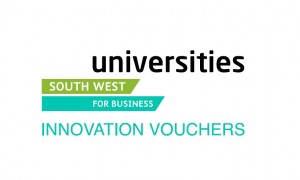

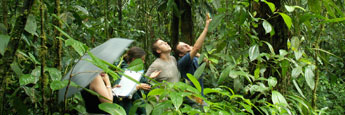



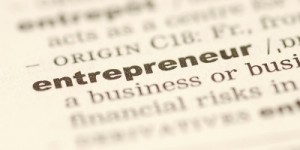



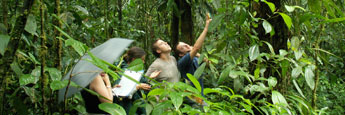
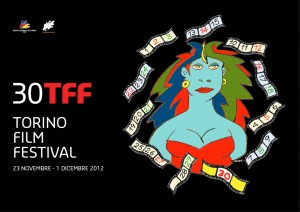












 Beyond Academia: Exploring Career Options for Early Career Researchers – Online Workshop
Beyond Academia: Exploring Career Options for Early Career Researchers – Online Workshop UKCGE Recognised Research Supervision Programme: Deadline Approaching
UKCGE Recognised Research Supervision Programme: Deadline Approaching SPROUT: From Sustainable Research to Sustainable Research Lives
SPROUT: From Sustainable Research to Sustainable Research Lives BRIAN upgrade and new look
BRIAN upgrade and new look Seeing the fruits of your labour in Bangladesh
Seeing the fruits of your labour in Bangladesh ECR Funding Open Call: Research Culture & Community Grant – Apply now
ECR Funding Open Call: Research Culture & Community Grant – Apply now ECR Funding Open Call: Research Culture & Community Grant – Application Deadline Friday 12 December
ECR Funding Open Call: Research Culture & Community Grant – Application Deadline Friday 12 December MSCA Postdoctoral Fellowships 2025 Call
MSCA Postdoctoral Fellowships 2025 Call ERC Advanced Grant 2025 Webinar
ERC Advanced Grant 2025 Webinar Update on UKRO services
Update on UKRO services European research project exploring use of ‘virtual twins’ to better manage metabolic associated fatty liver disease
European research project exploring use of ‘virtual twins’ to better manage metabolic associated fatty liver disease